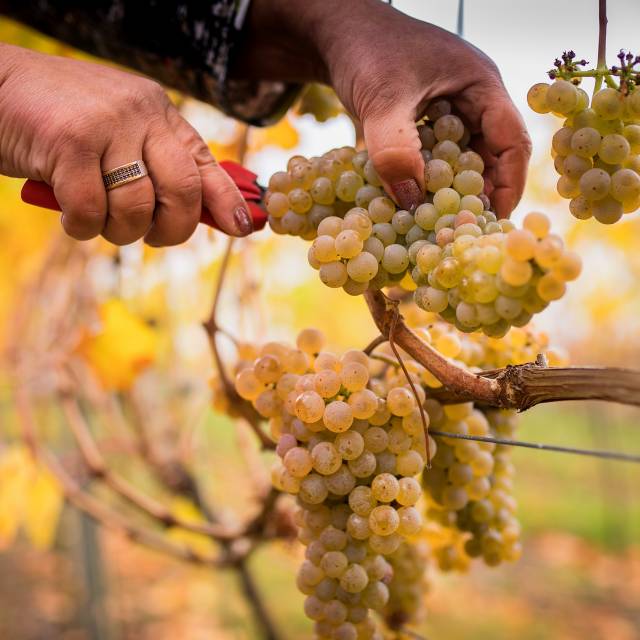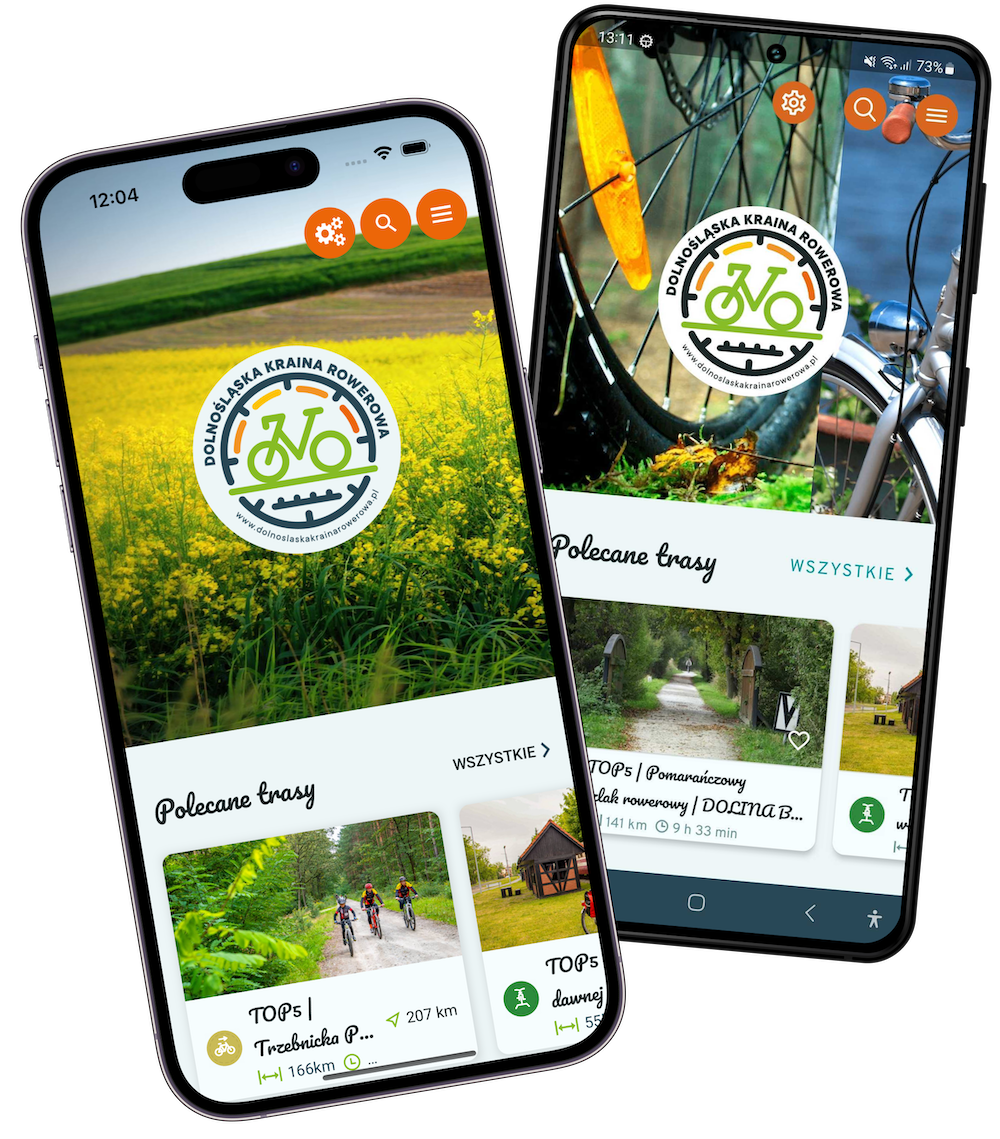The vineyard is located in the South Ridge of the Trzebnickie Hills, about 17 km north of Wrocław. From the tops of these hills, there is a beautiful view of the Silesian Lowlands, with the vast Wroclaw and the majestic Ślęza Massif visible. The Trzebnickie Hills region is sometimes compared to Tuscany in Italy due to its undoubted natural and touristic qualities. The hills are interspersed with a network of cycling routes, which are a fragment of the international trail (R9 - the Amber Trail) connecting the Adriatic with the Baltic Sea. Interestingly, the trail can be used to reach wine regions in the Czech Republic, southern Moravia and Austria. Not far from the vineyard was a picturesque route of the narrow-gauge railway connecting Wrocław with Trzebnica and further with Żmigród. Currently, the most interesting parts of the railway track from Piotrkowiczki to Węgrzyn are being renovated, and it is possible to cover the route on foot or by bike. Along the above-mentioned route it is possible to reach a well-developed (shelter, place for a bonfire) vantage point on Wiszniak, which is the highest hill in the commune of Wisznia Mała.
Climatic conditions in the Trzebnickie Hills region are among the best in Poland due to warm winds from the Atlantic (similar to the famous Bordeaux), and for this reason spring starts as early as the end of March.
The tradition of viticulture in these lands is very old. Before the Second World War, there were vineyards on the hills around Trzebnica and after the war there were attempts to establish new plantations. Due to socio-economic changes and harsh winters, the vineyards were closed down. It is worth recalling the presence of the Cistercian Order in these lands and their involvement in economic life, including wine production. Material traces of their former splendour are the monasteries in Trzebnica and nearby Lubiąż, which are milestones of the Cistercian Trail. Also worth mentioning is an interesting 18th century palace in Bagno, Oborniki Śląskie municipality, which houses a Salvatorian monastery. It is possible to visit the palace and adjacent gardens on public holidays.
The vineyard was established in 2015 on an area of approximately 1 ha. In spring 2020, the vineyard was expanded to 2 ha. Production is based on manual work carried out by the winemaker and his family. The vines are cultivated using methods that produce high-quality fruit, e.g. by fertilising with natural fertilisers used in organic farming.
The idea to establish a vineyard took years to mature, and its realisation entailed major changes in the owner's personal and professional life. Agricultural education, commercial experience and family traditions facilitated the start of wine production. The success of this initiative could be a good example for other smaller farms seeking income from agricultural production and small-scale processing. It is one of the alternatives to increase the chances of economic and social stability in the countryside with the prevailing large-scale farm model.
The promotion of own production is carried out through attention to the highest quality and reference to regional/local values and traditions. The very name of the vineyard refers to the patron saint of the area, St. Jadwiga Śląska. The winery's logo is based on the shape of a prince's mitre, and the visible birds of prey are falcons, which are a visualisation of the winemaker's interest in falconry.
Already the first vintage ( 2016) was one of the successful ones, which was reflected in the ENOEXPO -2017 medals. In the following years, wines from Jadwiga Winery were appreciated and awarded medals in national and international competitions. As of 2019, the production of naturally sparkling wines, the so-called Pet Nat-wines, has started. New opportunities are being sought, as exemplified by the production of ice wine and the obtaining of a certificate for the production of so-called Mass wines. Current activities are focused on creating a better production base and making the winery more attractive to tourists.
It is possible to visit the vineyard and winery and organise a demonstration-tasting by telephone appointment.
The winery currently has no accommodation or catering facilities. The plan is to launch an agrotourism offer and make rooms available for accommodation. Restaurants and hotels are available, among others in Miłocin in Pierwoszów, Trzebnica and Kuraszkowo near Oborniki Śląskie.






















